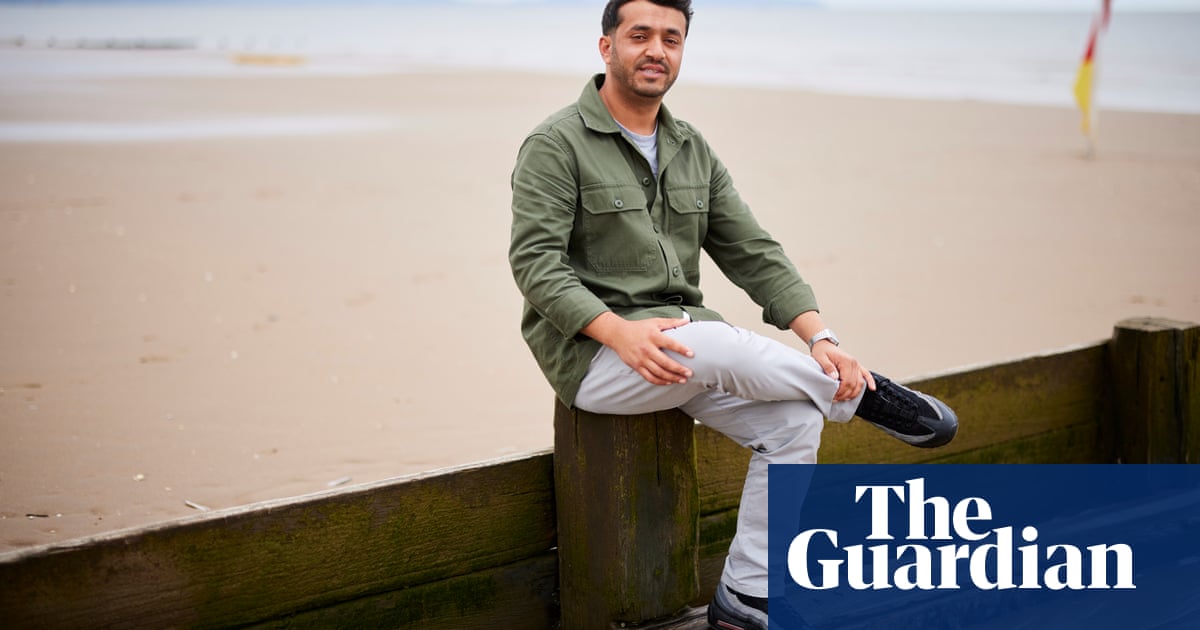
Asmall kiosk sits humbly next to Manaus Opera House, in the heart of the Amazon rainforest in Brazil. Tucked below some trees, the shop is easy to walk past without noticing. But through its green glass doors lies the world’s largest collection of Amazonian literature: a treasure chest of forgotten cultures and ignored histories.
“It was always my dream to have a bookstore,” says Joaquim Melo, the 64-year-old owner of the Banca do Largo bookshop. “I’ve spent my life searching for these treasures.”
The Amazon is known for many things: its biodiversity, its Indigenous cultures, its forest’s power and precariousness. It is not generally known for its literary scene. Yet the region is home to many novelists, poets and short story writers who for decades have been using literature as a vehicle to promote and protect their cultures. These literary traditions, however, remain largely unknown within the region and abroad. As a result, people learn about the Amazon through the eyes of foreign explorers and anthropologists rather than from their compatriots.
Melo is trying to change this. Across the course of his life, he has curated a collection of more than 3,000 books. Banca do Largo serves as a refuge for Amazonian writers and activists alike, pushing to protect the region from exploitation. By promoting local literature, particularly works by Indigenous writers, Melo believes he can help spread new ideas about societal organisation and the environment that are different from the capitalistic frameworks prevalent in the west.
“These writers don’t see accumulation as a necessity,” he says. “They preserve the environment, they respect the rivers and the mountains, and they are anticapitalist.” He believes that “their vision needs to be shared”.
From a young age, Melo was an avid reader – his father would frequently bring books home. “Even though he couldn’t read, he made sure I did.”
When he was 11, Melo’s family moved from Brazil’s north-east to Manaus, where Melo picked up Imperador do Acre, a book by the Manaus writer Márcio Souza. Melo devoured the novel, reading it many times over. “Even today, I still think it’s one of my favourites.” It was the first time he had read an Amazonian writer, which made him wonder: “Where is all the Amazonian literature?”
Melo began seeking out more Amazonian books and by the time he went to study at the Federal University of Amazonas in 1999, his collection had grown considerably: other students came to him when they couldn’t find books in the university’s library.
In 2006, Melo decided to buy a magazine stand next to the opera house, where, alongside magazines, he displayed books from his personal collection. “I got a lot of positive responses,” he says, noting that students, artists, academics and professors would visit. “So I kept bringing in more books.” By 2010, the shop stopped selling magazines and specialised exclusively in Amazonian literature.
Over the past 12 years, Melo’s bookshop has become a key feature of Manaus society. “This is the centre for Amazonian culture and literature,” says Eunuquis Aguiar Muniz, a comic book writer. “There’s no other place like it.”
When you walk into Banca do Largo, you can tell the shop is the result of years of careful reading and deep studying about the region’s past and present. The books on the shelves range from poetry collections celebrating the jungle’s forest and fauna to novels chronicling the experiences of Lebanese-Brazilian migrants.
“I don’t even know if there is just one Amazonian literature,” Melo says. “So I include everything, from the European explorers to the new texts by Indigenous writers.”
The first written text about the Amazon is believed to be a 1542 book which chronicles the day-to-day life of Spanish explorer Capitán Francisco de Orellana as he travelled through the Napo region in search of gold. A 1942 edition of the book is on display in Melo’s shop, but he is quick to mention that many explorers dismissed the way of life of Indigenous people. “As a result, the origins of Amazonian literature history as we know it are quite complicated from a cultural and political perspective.”
By the 19th century, Amazonian writers started emerging. In 1852, Lourenço da Silva Amazonas published Simá, a book that seeks to give value to the Amazon region and its inhabitants, placing it as a founding element of Brazil’s identity.
But the region’s literature really flourished in the 20th century, when writers such as novelist Milton Hatoum and poet Thiago de Mello began publishing. “Mello denounced the exploration of Indigenous land and the military dictatorship,” Melo says. “He engaged with the principles of democracy.”
And in 1980, an Indigenous myth was published in written form for the first time. The book, Antes O Mundo Não Existia written by Umusi Pãrõkumu and Tõrãmu Kehíri, was groundbreaking. After its publication, a nine-volume collection followed that sought to promote myths descended from the Indigenous tradition of oral storytelling.
Since then, a new generation of Indigenous authors have emerged. Writers including Ely Macuxi, Daniel Munruku and Ailton Krerak have changed the face of Amazonian literature, offering new perspectives on the region and on the value systems that govern Brazil.
“The books I sell here show what the Amazon actually is,” Melo says as he hands me a book by Macuxi. “But it’s hard to find Amazonian literature outside the Amazon.”
Melo thinks this is largely due to the priorities of Brazil’s publishing industry, which favours authors from big cities such as Rio de Janeiro or São Paulo. But a lot of it has to do with consumers themselves, who Melo says are more interested in bestsellers and self-help books.
“Of course, there is a part of the Brazilian population that is interested in knowing ancestral and Indigenous knowledge,” he says.But the rise of the far right and fake news in Brazil means that people increasingly have prejudices about the Amazon and its inhabitants, Melo believes, ranging from racism towards Indigenous people to underestimating the seriousness of deforestation.
“I’ve been here for 18 years and I’ve been doing what I can to promote Amazonian culture,” he says. Melo has watched as books have shaped not only his worldview, but those of his customers. Literature has the power to change how people understand the Amazon, he believes. “We just need to let these books speak for themselves.”












